What Is Glutamine And Do You Need It?
If you’ve heard of glutamine and wondered what it is, what it does, and whether it’s something you need more of in your diet, this article is for you.
What is Glutamine?
Glutamine is a type of amino acid which are the building blocks of proteins. Of all the amino acids in the body, glutamine is found in the highest amounts, so it’s super important. Most glutamine is stored in your muscles, and the rest is in organs such as the liver, brain, and lungs.
What Are the Benefits of Glutamine?
Glutamine plays many important roles in your body and can provide many benefits.
Some Benefits of Glutamine Include:
- Wound healing. Glutamine is often used as a treatment for severe wounds and burns. This is because it supplies injured cells in your body with energy and other necessary components to help them heal.
- Recovery from illnesses. Glutamine is considered fuel for the immune system and is essential for your immune system to work correctly. Therefore, having enough glutamine can help you recover from illnesses and keep you from getting sick as often.
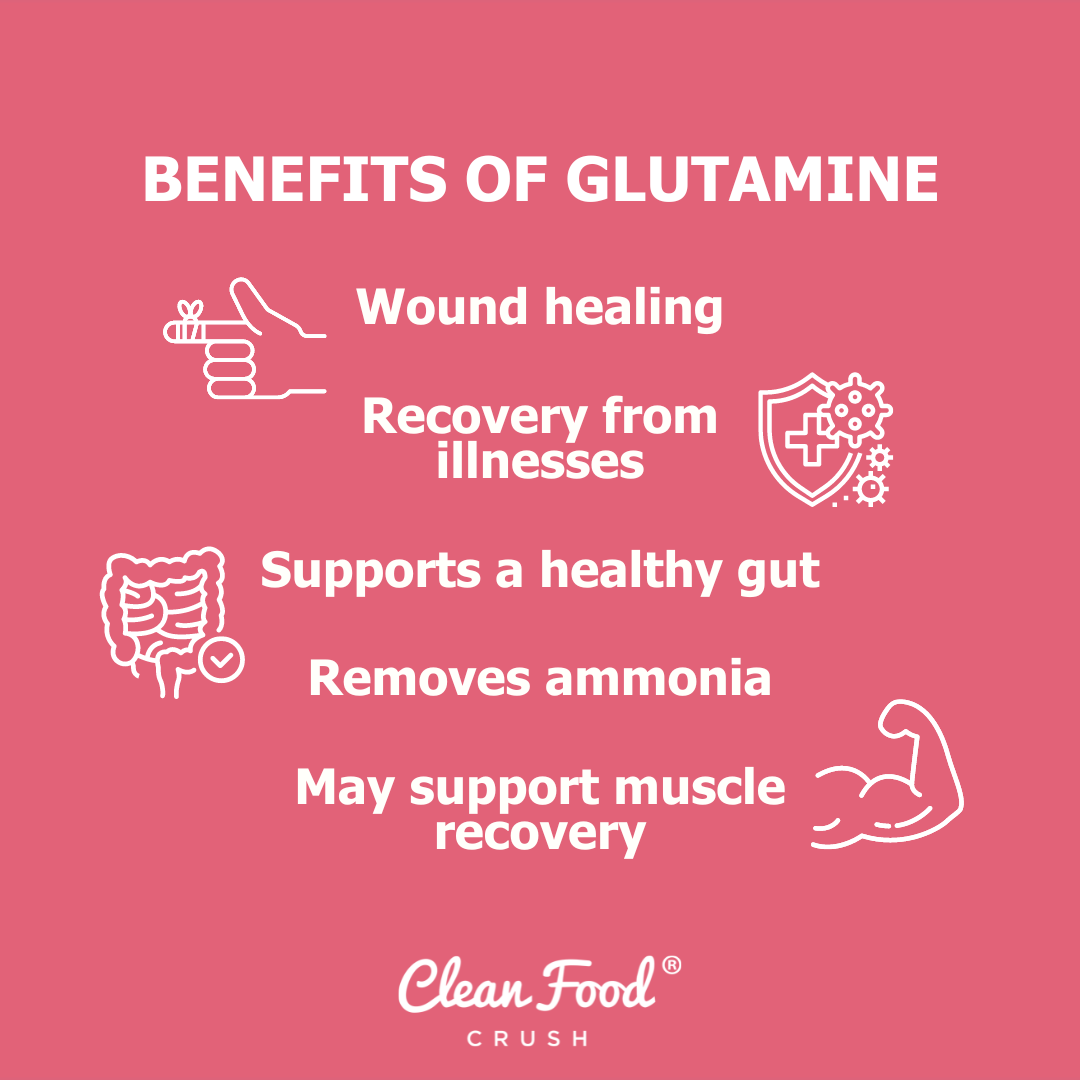
- Supports a healthy gut. Glutamine supports the health of your gut microbiome (which you can read more about here). It does this by supporting the integrity of your gut lining, which helps reduce inflammation and promotes proper digestion and absorption of nutrients. Glutamine may also help manage some digestive conditions like irritable bowel syndrome (IBS), leaky gut, and inflammatory bowel diseases, making it crucial for good gut health.
- Removes ammonia. Ammonia is a waste product your body produces and is eliminated in your urine. Glutamine helps remove ammonia from your body. This helps prevent toxicity since too much ammonia can harm your health.
- May support muscle recovery. Bodily glutamine stores can become low for extreme athletes since so much is used up from the muscles during intense exercise. Some research has shown that taking glutamine supplements after intense exercise can support muscle recovery, which may help prevent injury and/or improve performance.
Where do you get glutamine?
While your body makes its own glutamine, you can also get it from certain foods.
Some food sources of glutamine include:
- Spinach
- Parsely
- Cabbage
- Yogurt
- Cottage and ricotta cheeses
- Milk
- Pork
- Beef
- Chicken
- Turkey
- Bone broth
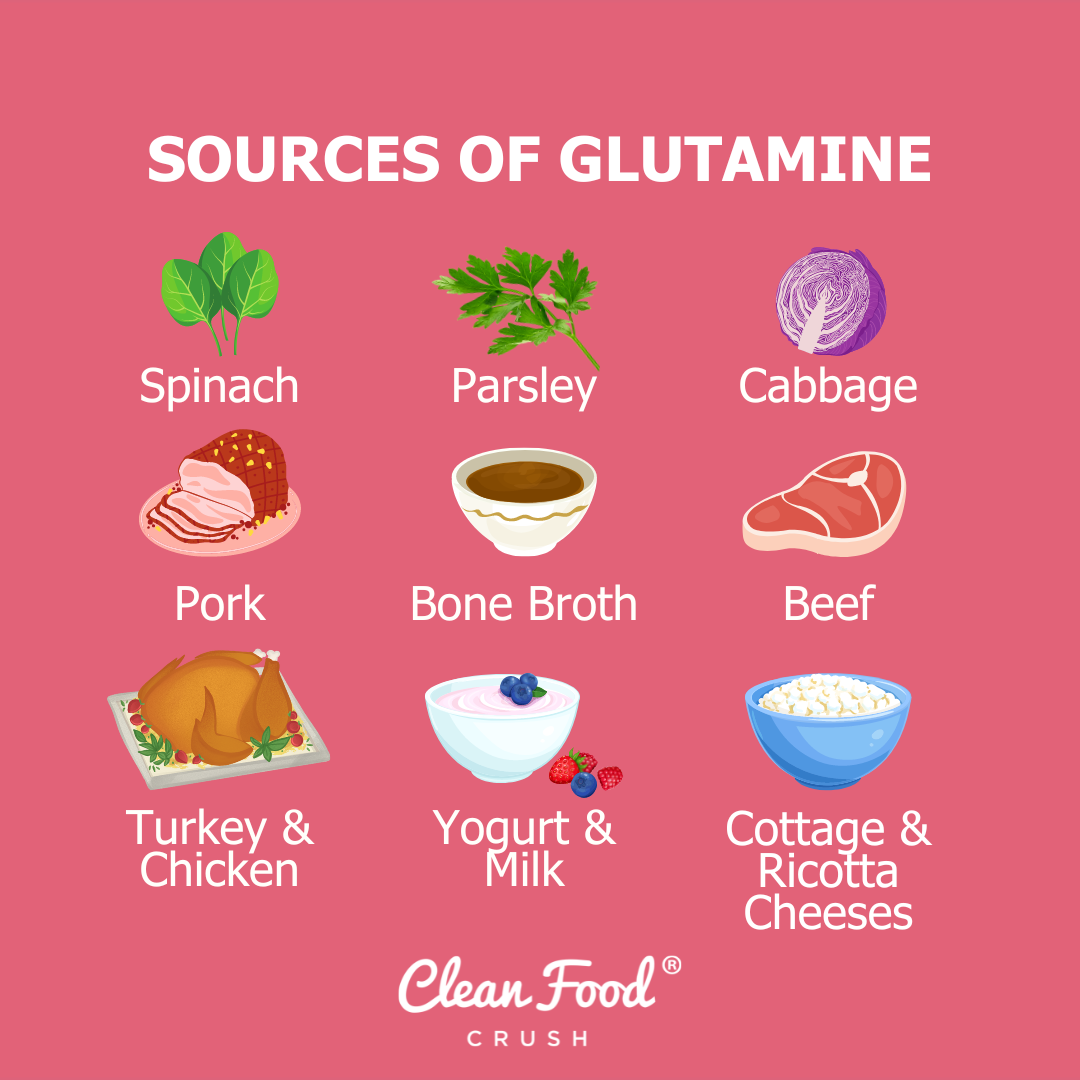
Eating a variety of these foods and high protein foods in general can help ensure your body has enough glutamine.
Here are some delicious recipes that include some of the listed ingredients:
Asparagus + Quinoa with Bacon & Fresh Spinach Salad
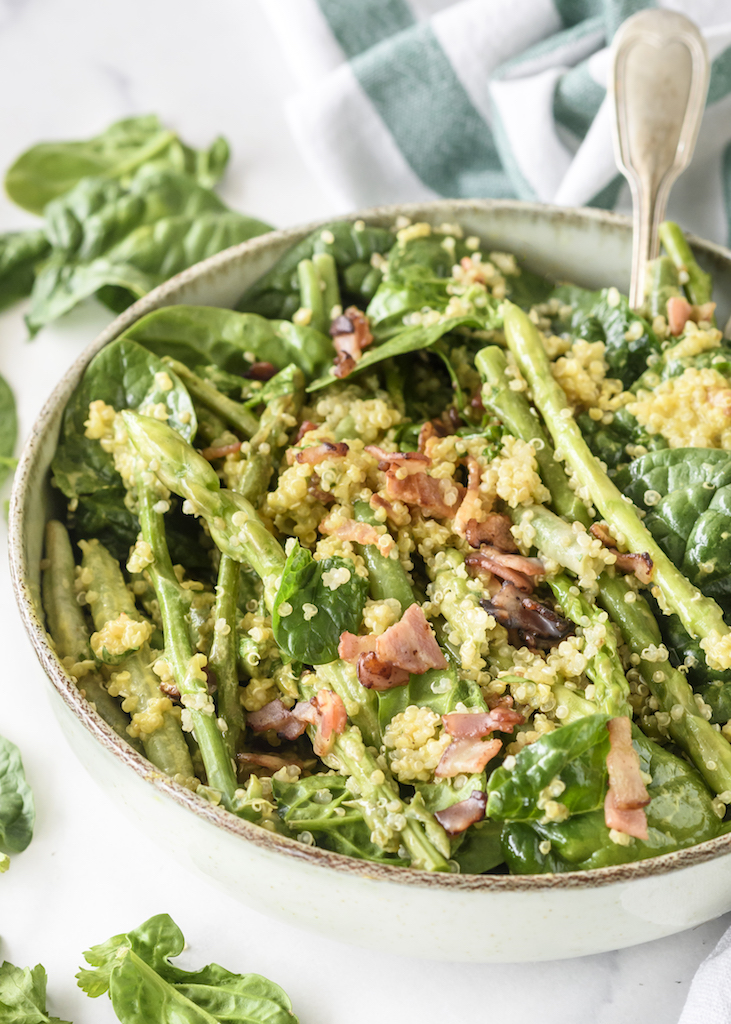

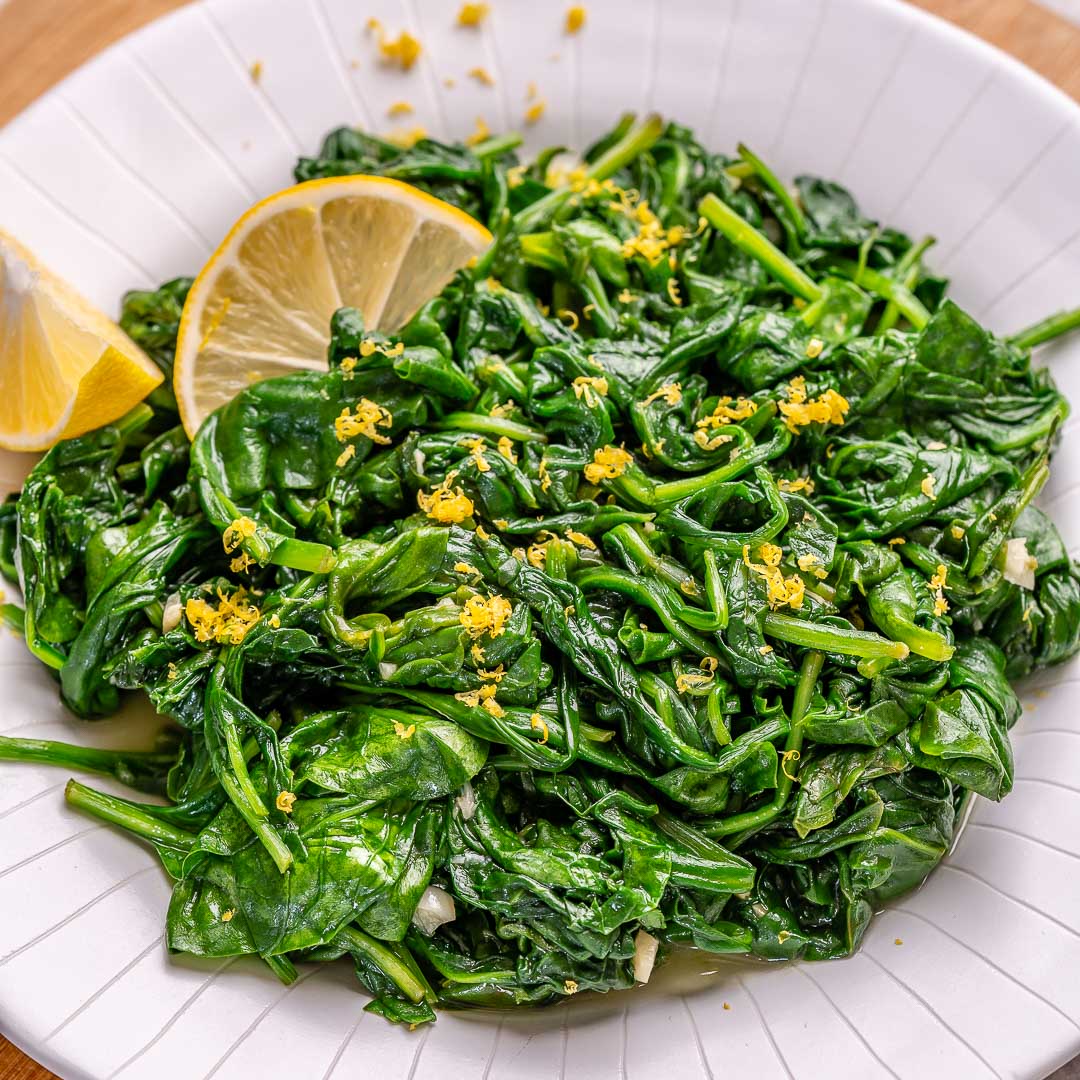

Turkey + Sausage + Spinach + White Bean Soup!
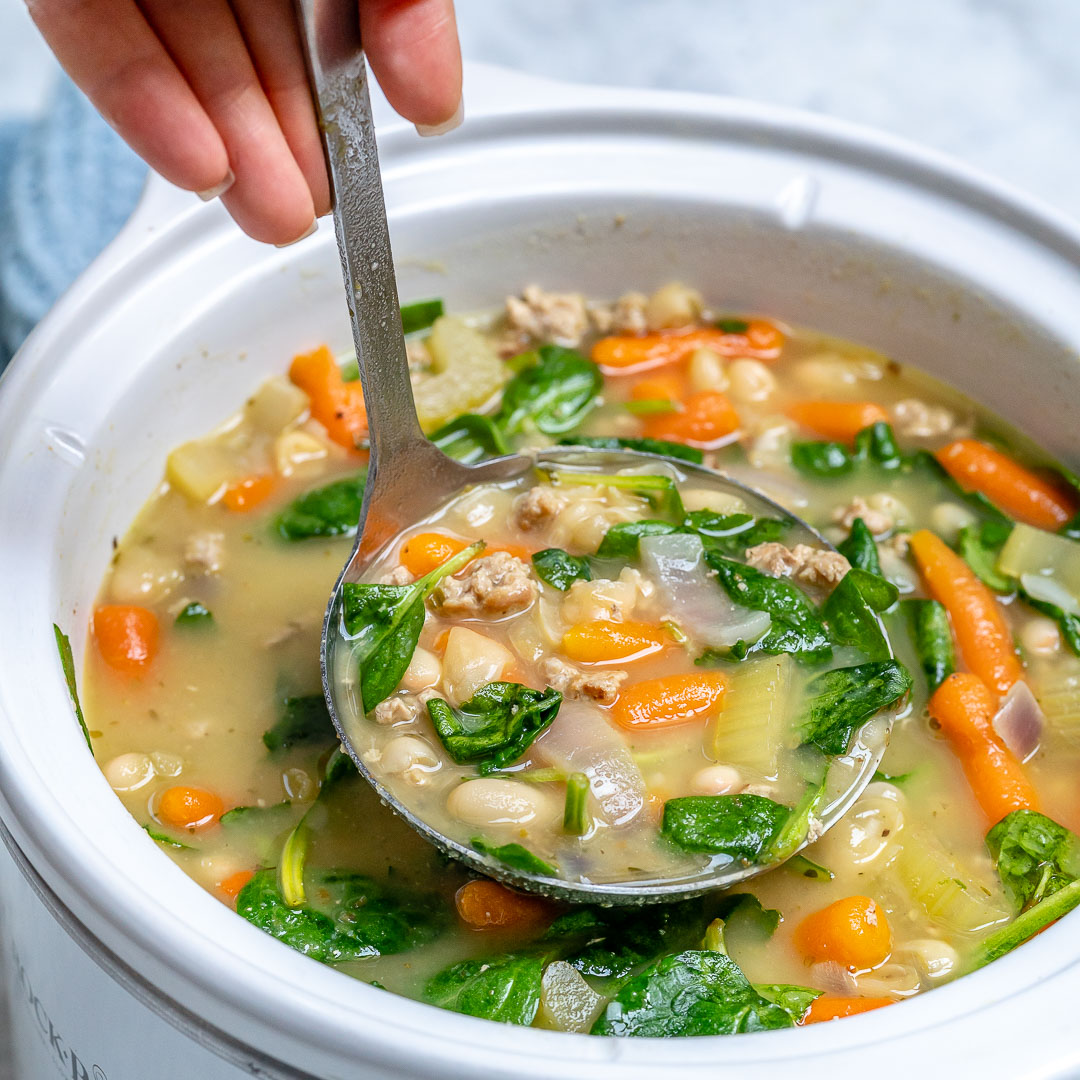
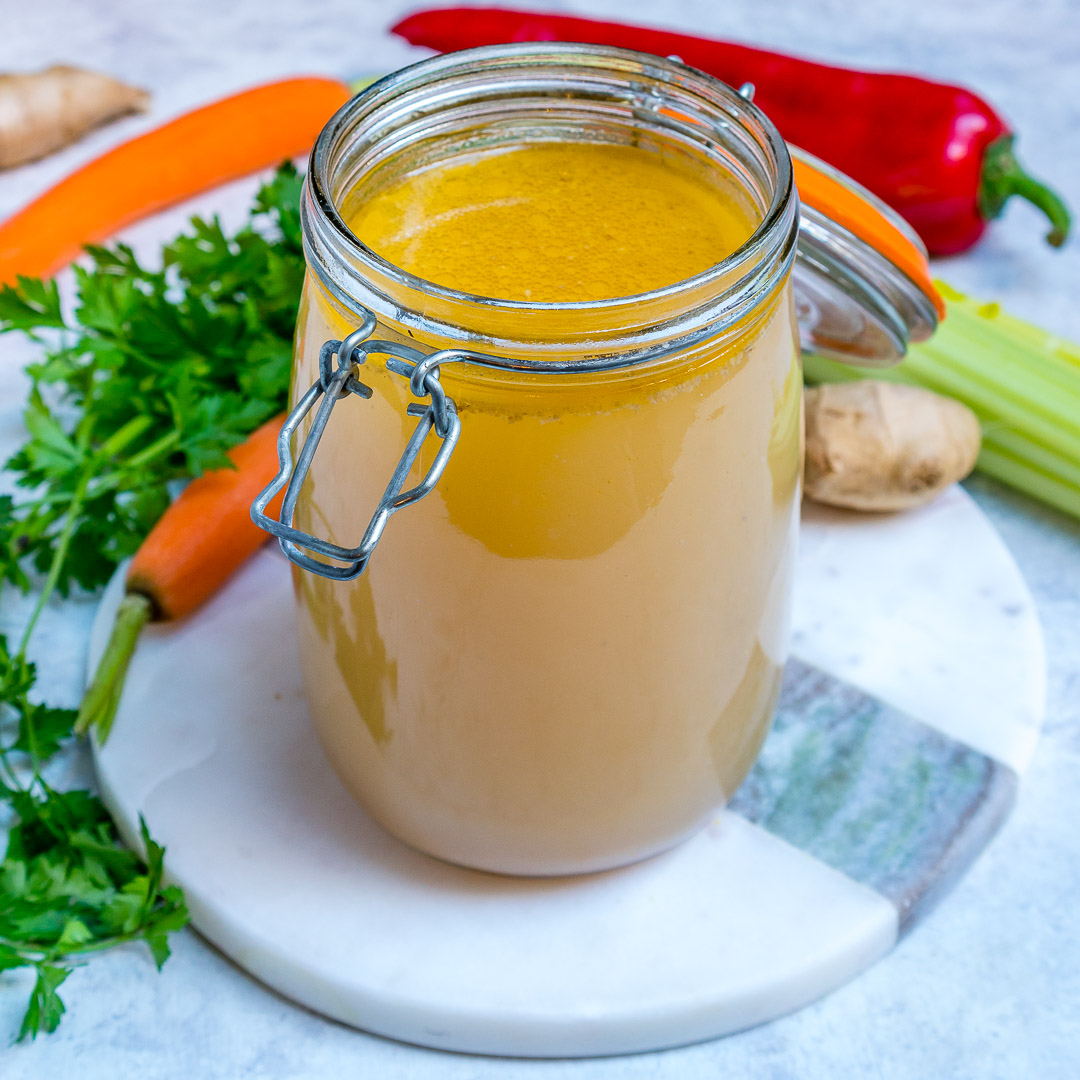

Hot N’ Hearty Melty Cabbage Casserole
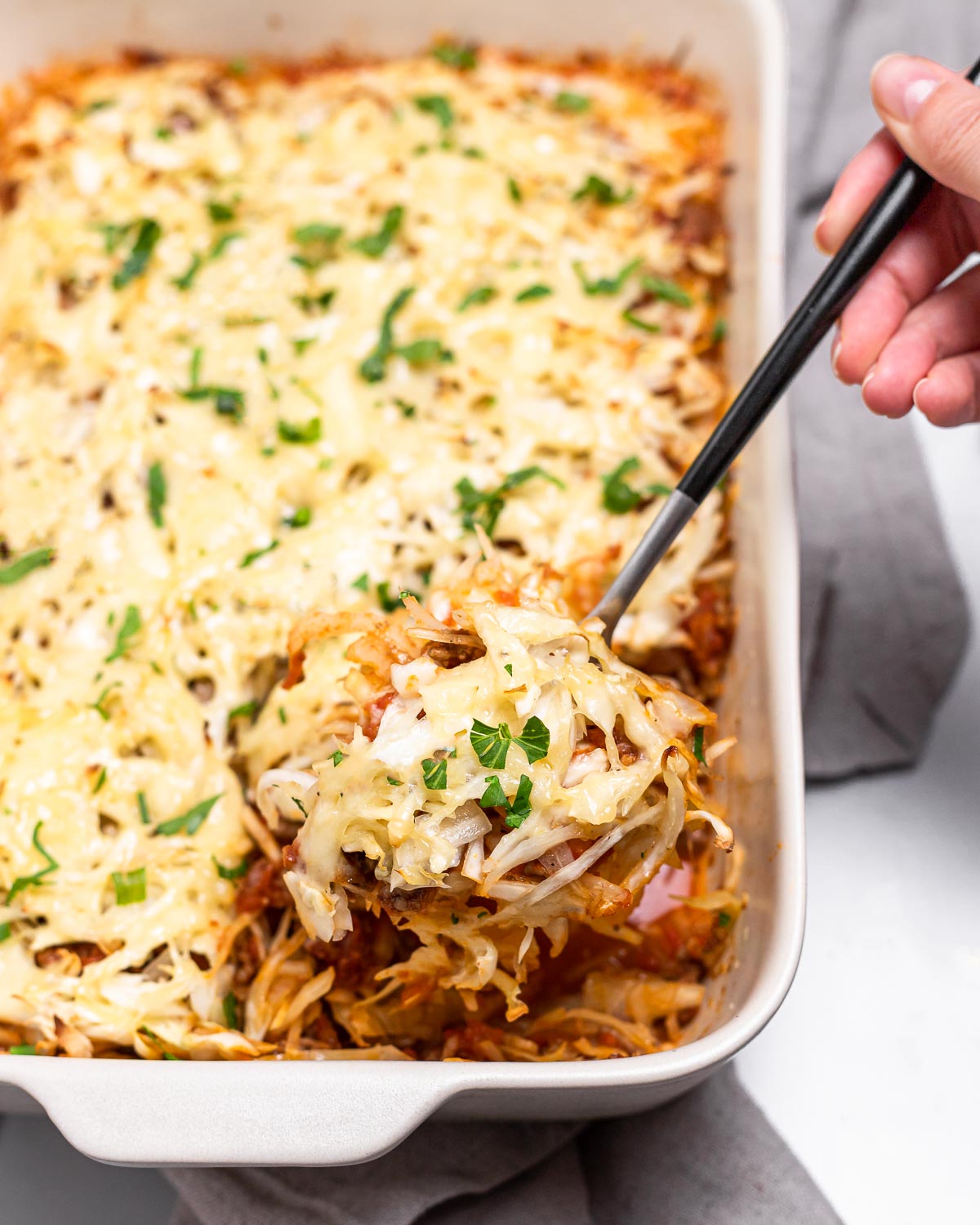

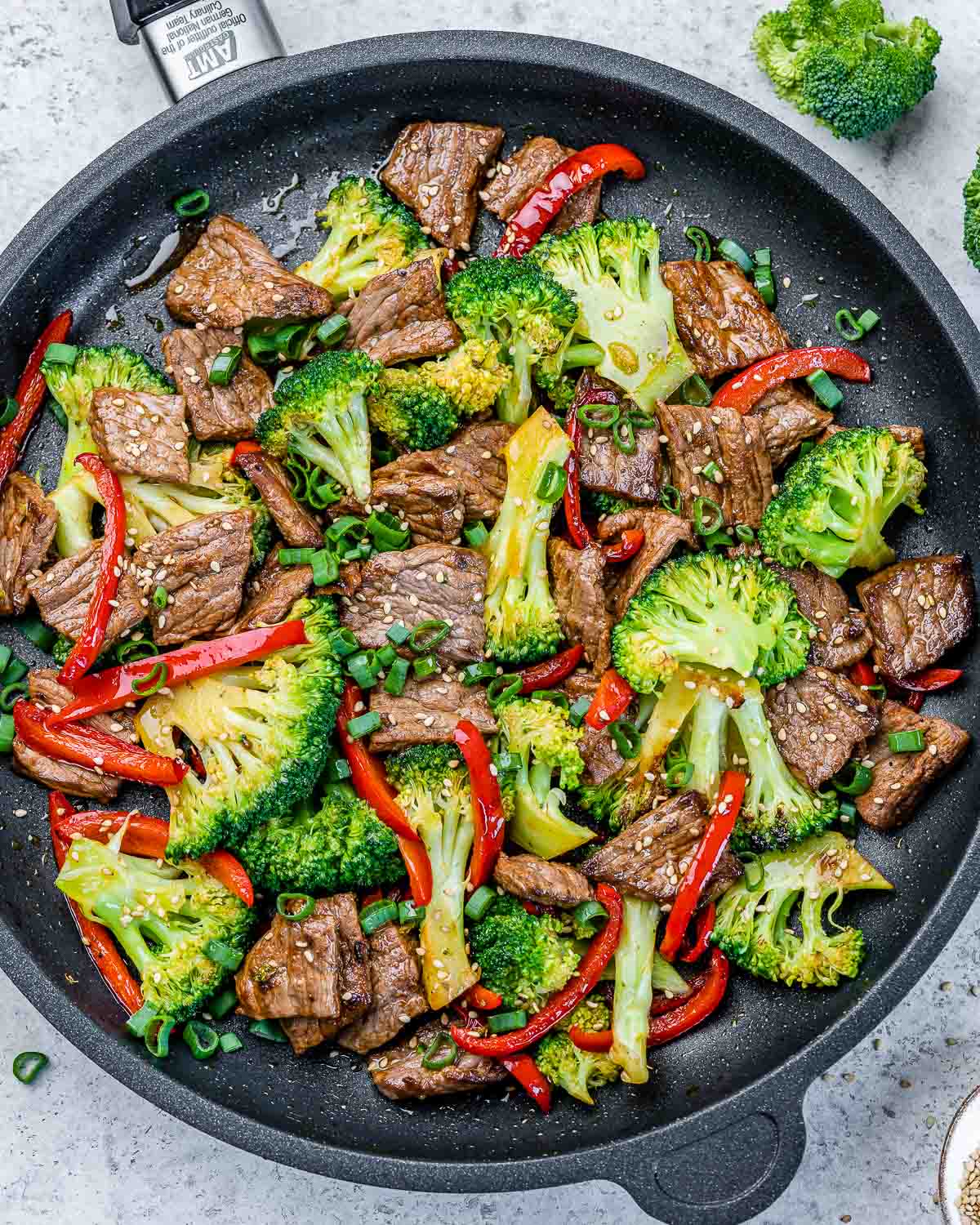
Do You Need a Glutamine Supplement?
Like many other nutrients, glutamine is available in a supplement form. Under normal circumstances, your body can make enough glutamine to supply its everyday needs. However, some circumstances may increase your body’s need for glutamine, in which case a supplement may be beneficial.
Experiencing extreme stress in your body can lower glutamine levels and cause your body to need more of it. This stress may come from things like:
- Infections
- A recent surgery
- Physical injuries such as wounds or burns
- Intense exercise
Under these circumstances, taking a glutamine supplement may be beneficial and assist your body with the healing process.
In addition, people who experience digestive issues may choose to take a glutamine supplement to support their gut health.
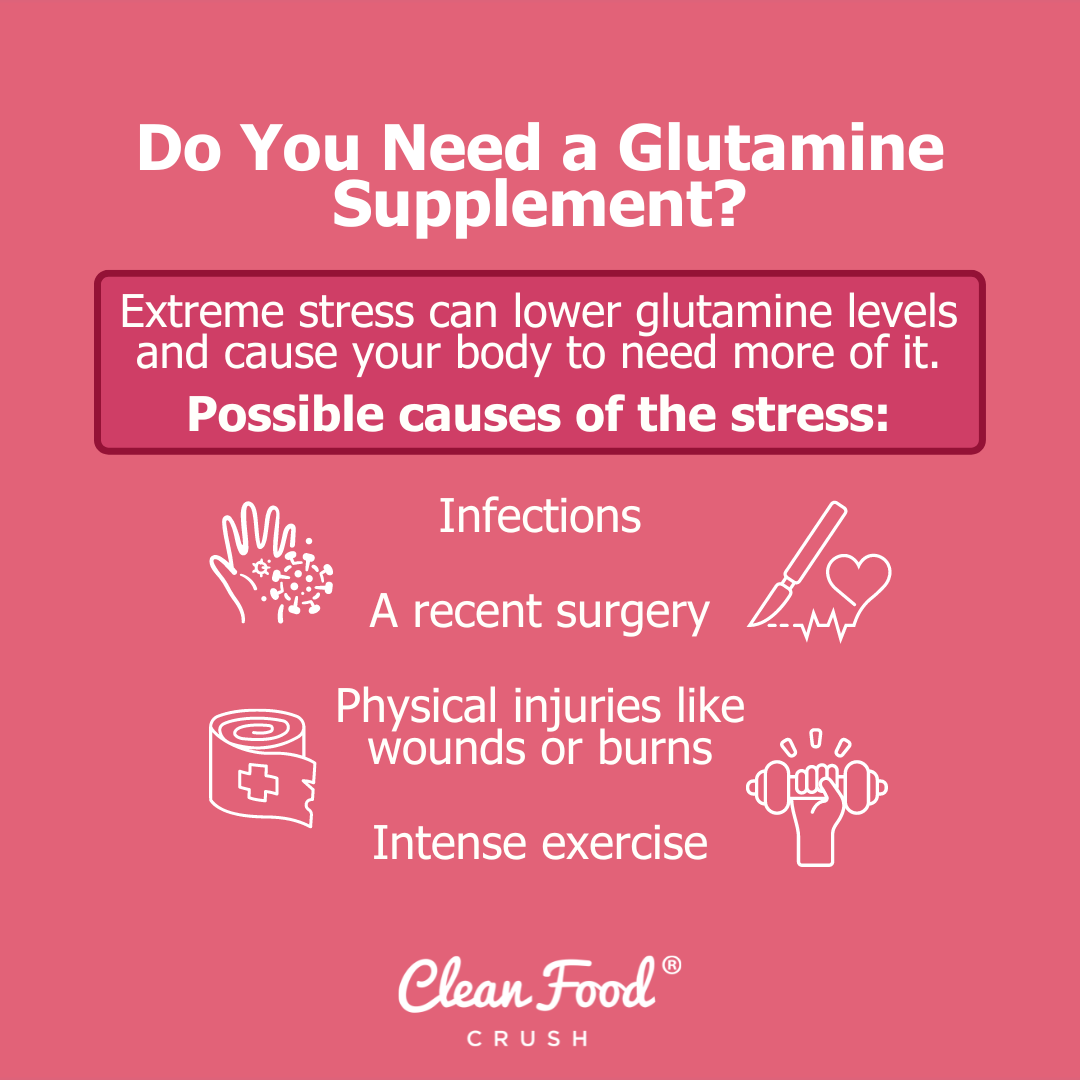
It is imperative to keep in mind, though, that glutamine may interact with some medications and is not indicated for everyone. People with certain medical conditions, such as kidney disease, should not take glutamine supplements. You should always talk with your doctor before deciding to start taking a glutamine supplement and only use them for reasons supported by evidence.
In Summary
Glutamine is an amino acid that is used to make proteins. It supports many essential functions in the body such as wound healing, supporting the immune system, muscle recovery, and more. You can get glutamine from eating a variety of high protein foods, and your body can also make glutamine on its own. In some instances, taking a glutamine supplement can also be helpful.
Ultimately, having enough glutamine in your body is important, so doing what you can to support its functions is a good idea.

Would You Like 24/7 Access to a Support Team That Can Help You Find Answers to Your Nutritional Questions?
You’ve got questions, we’ve got answers, all day, every day. Members of our 30-Day Clean Eating Challenge Plan get access to our Amazing Support Team plus a vault of knowledge to help you answer those nutritional questions that are on your mind, even if it’s 2 am. Want to know how to get rid of bloating quickly? We’ve got you. Does your energy leave you dragging throughout the day? We’ve got you… AND our VIP CRUSHers who have healed their own health issues by following the Challenge Plan are there to answer questions for you, too.
Not to mention, our 30-Day Clean Eating Challenge can help you lose weight and feel great! It includes FAR more than a meal plan and amazingly delicious clean and healthy recipes. The Challenge Plan covers portions, macros and all the science for getting YOU the best energy and health… All while LOVING the food you eat! If you are looking for a proven program with a detailed plan, amazing support, and a money-back-guarantee, then give the Clean Eating Challenge a try!
The post What Is Glutamine And Do You Need It? first appeared on Clean Food Crush.


Leave a comment